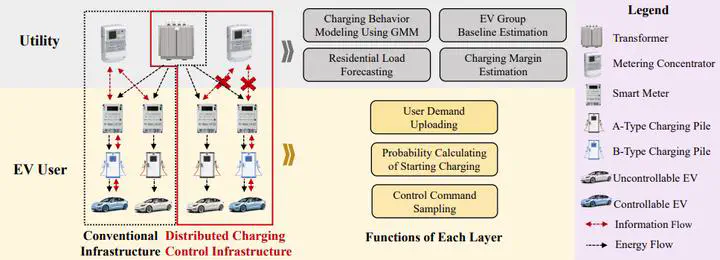摘要
Large-scale renewable integration presents an effective way to decarbonize power grids, but carries increased risk of supply shortfalls owing to its volatility and uncertainty. Storage is a promising option to improve the generation adequacy of renewable. Thus, capacity credit assessment of renewable and storage is crucial in ensuring adequate generation capacity to meet loads. However, efficiently and accurately assessing capacity credit of these resources is challenging due to temporal dependencies in the operational time series (net loads and conventional generation units) and the need for extensive operation simulations. This paper develops a comprehensive multi-time-scale assessment framework integrating analytical and simulation methods to calculate the capacity credit of renewable and storage, thus capturing temporal features of these time series. Then, an interval-based strategy is proposed to simulate system operations, incorporating demand response in key scenarios. Furthermore, partitioning around medoids clustering and parallel computing techniques are employed to greatly accelerate the numerous operations for capacity credit assessment. The proposed method is validated using the RTS-79 system and a provincial real-world power grid in China. The results indicate that the developed framework can achieve efficient and refined capacity credit assessment and thus evaluate the impact of storage on the capacity credit.



